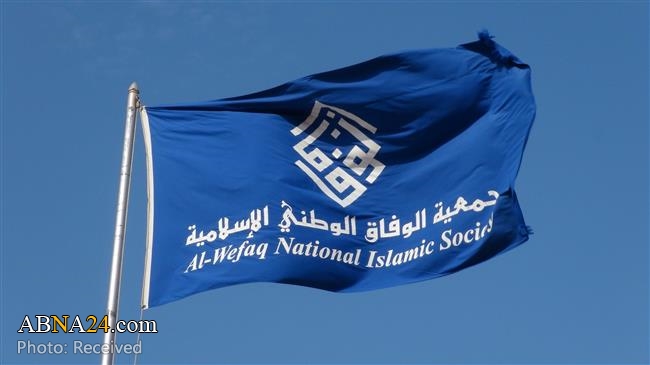(AhlulBayt News Agency) - The Bahrain Declaration, a name al-Wefaq gave to its proposal, consists of 13 “universal human principles serve as a model for moderation and participation in the management of the state.”
It stipulates establishing a democratic atmosphere in Bahrain in order to give all the parties the freedom to have equal opportunities which can be seized amid tolerance and respect, the declaration said, adding that it is also based on the need for a reassuring sense of citizenship, national unity, fair representation in the society, community protection, development and pluralism.
It also said that the principles included respect for religious and cultural identity, sectarian and societal characteristics.
The declaration further called for the protection of civil peace through equality before the law, and the right to form civil society institutions, including the formation of political organizations.
On June 14, 2016, the Bahraini Justice Ministry suspended the activities of the opposition group, and on July 17, 2016, the Bahraini High Administrative Court ordered the dissolution of al-Wefaq and the seizure of its funds, accusing it of helping to “foster violence and terrorism” in Western-allied Bahrain, where the US Navy’s Fifth Fleet is stationed.
The court ruling drew criticism from the United Nations, with then Secretary General Ban Ki-moon describing the dissolution as “the latest in a series of restrictions of the rights to peaceful assembly, freedom of association, and freedom of expression in Bahrain.” Al-Wefaq’s leader Sheikh Ali Salman, a senior Bahraini Shia cleric, has also been in prison on a nine-year jail sentence since late 2014, convicted of inciting unrest.
Manama also stripped Sheikh Isa Qassim, the spiritual leader of al-Wefaq, of his citizenship in June 2016 over accusations that he had used his position to serve foreign interests and promote sectarianism and violence.
The opposition group and both its leaders have already rejected the allegations, saying they are seeking necessary political and social changes in the country through peaceful means.
On February 19, the Court of Cassation turned down an earlier appeal to challenge al-Wefaq’s dissolution and seizure of its assets, and upheld a previous ruling.
Thousands of anti-regime protesters have held demonstrations in Bahrain on an almost daily basis ever since a popular uprising began in the country in mid-February 2011.
They are demanding that the Al Khalifah regime relinquish power and allow a just system representing all Bahrainis to be established.
Manama has gone to great lengths to clamp down on any sign of dissent. On March 14, 2011, troops from Saudi Arabia and the United Arab Emirates were deployed to assist Bahrain in its crackdown.
Scores of people have lost their lives and hundreds of others sustained injuries or got arrested as a result of the Al Khalifah regime’s crackdown.
On March 5, 2017, Bahrain’s parliament approved the trial of civilians at military tribunals in a measure blasted by human rights campaigners as being tantamount to imposition of an undeclared martial law countrywide. Bahraini king ratified the constitutional amendment on April 3 last year.
/129
source : Rasa News
Sunday
3 June 2018
6:39:58 AM
896057

Bahrain’s main Shia opposition group, the al-Wefaq National Islamic Society, which has been dissolved and banned from conducting any activity by the ruling Al Khalifah regime, has proposed a democracy-based solution to settle the years-long political crisis in the Persian Gulf island country.
